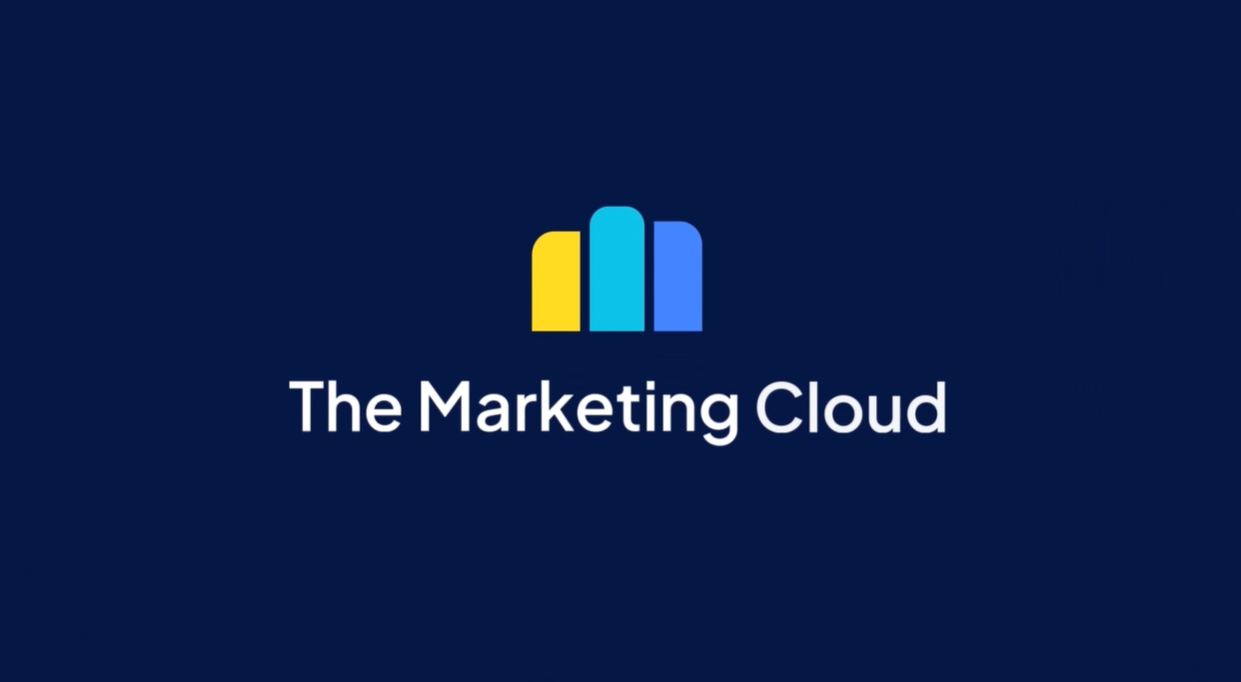Artificial Intelligence
Stagwell's Experts Weigh In: Will A.I. Transform Marketing?
CONTACT
hello@stagwellglobal.com
SIGN UP FOR OUR INSIGHTS BLASTS
As we look to the future of marketing, one thing is certain: Artificial Intelligence (A.I.) will play a major role in shaping the industry. From generative A.I. revolutionizing the way we approach creativity to predictive A.I. providing unprecedented insights and analytics, the potential of A.I. in marketing is vast and exciting.
But what exactly does the next decade hold for this rapidly evolving field? We asked some of the top minds across Stagwell, including leaders from the Stagwell Marketing Cloud, PRophet, Code and Theory, Colle McVoy, Yamamoto, Concentric Health Experience, and Vitro, to share their predictions and insights on the future of A.I. in marketing.
A.I. Won’t Eat the World – But it Will Give Consumers Time and Brands Opportunity
Mansoor Basha, Chief Technology Officer, Stagwell Marketing Cloud
“AI and ML are at the forefront of driving digital transformation across industries and will undoubtedly continue to do so. In a 2011 op-ed, Marc Andreessen observed an environment in which software was increasingly becoming king, famously stating that ‘software is eating the world.’ His observation came about a decade after the peak of the 1990s dot-com bubble as companies like Facebook and Skype were booming. Looking to the next decade, I believe that AI and ML will be eating the world, changing the way we work, live, and interact with brands.

I predict that as AI technology changes everything around us—with things like driverless cars and more efficient, sustainable systems—consumers will have more time on their hands. This will give brands the opportunity to leverage more pointed channels to reach audiences that have more free time to participate. AI will find brands’ ideal audiences and reach consumers in the right place at the right time, especially as AR and VR go mainstream.
And as the hype around ChatGPT and generative AI simmers down, marketing teams will become more comfortable adopting a wide range of AI tools that help them build powerful workflows that drive innovation, aid in decision making, and create new business models. ChatGPT will be an entry point for many marketing teams as they look for relevant ways to use new technologies in their day-to-day work.”
Enhance, Not Replace
Aaron Kwittken, Founder and CEO, PRophet
“Generative AI, while not perfect, is the needle that pierced the veil of doubt and fear amongst marketers when it comes to adopting AI technology. The current limitations are only encumbered by the lack of data needed to make it more performative. 
When paired with the right inputs, this technology will make marketers more efficient by enabling them to create base content faster and better, freeing them up for higher value tasks like editing and strategy deployment. In addition to content creation for press releases, social posts, pitches, marketing collateral, blogs, and more, I see this technology as a huge aid when it comes to legal and compliance issues, especially when working with third parties like influencers and celebrity spokespeople.
Make no mistake, though, the downsides will need to be managed.
Generative AI may reduce the need for junior staff; could be used as an accelerant to create and spread mis and disinformation; and could make professionals more complacent, less creative, and more transactional. This is where it will be on marketers to get creative about how they use this tool to enhance their current activities, not replace them.”
The Key Word with A.I.? Enablement
Dan Gardner, Code and Theory Co-Founder and Executive Chairman
“At the moment, where we will see AI transformation is in how we conduct business. While traditional creative shops may be focused on stunts and activations, I believe the key word here is ‘enablement,’ and how the technology allows businesses to do what they haven’t been able to do before.
Where the technology is built into systems that yield long-term results. What this looks like exactly, we still do not know for certain, but I do know that technology at its best is when it has the power to drive meaningful change in people’s lives.”
Watch Out for A.I.’s “WordPress” Era
Yamamoto Digital Team
In the end it’s not the technology that sells, it’s the story it tells.”
Welcome to AI as shiny new toy, with machine learning, natural language processing and open access combining to create a sandbox for early adopters. Expect showy, public activations (e.g. Ryan Reynolds reading an AI-generated script for Mint Mobile) as well as backstage experimentation. We marketers will find it hard to pass on an instant first draft of everything we do.
Then AI enters its WordPress phase. Smaller players will benefit from “good enough” templates that auto-generate content. Meanwhile experts will game AI’s limitations to circumvent the inevitable commoditization.
There are also threats. To brand safety. To copyright laws. To beliefs about creativity. We’ll have hard conversations about everything from unconscious bias to criminal misuse. Then, in ten years, full impact. We imagine a golden age of hyper-targeted, account-based marketing. We also predict AI depreciating the value of individual assets a la Napster killing the compact disc. Expect real people to respond with bespoke, humanistic, artisan campaigns.
Finally, a confession. That tasty quote at the top? ChatGPT wrote it. The prompt: Crystalize the future of AI in the haunted, optimistic voice of Don Draper. How’d we do?
“Make it More Human”
Ben Majoy, Creative Director, Observatory
We’re in the industry of threading the needle of perfection, constantly trying to find new ways to get as close as possible to what sometimes feels like an impossible vision. Artificial Intelligence is now creating a superficial answer to that question, but we’ll soon see that creating something narratively resonant means a lot more than a “vision” coming to life.

In the same way that a perfect cheeseburger just doesn’t taste as good as a sloppy one (or any other curated vs. bespoke experience example you want to use), we’re going to see that no matter how accurate the A.I. responds to our prompt, it will never FEEL as good as the human-made. There’s humanity in what we do.
Until Artificial Intelligence can replicate nostalgia, trauma, and emotions like seeing someone you haven’t seen in ten years and picking up right where you left off, we will also feel like something is missing. We’re about to enter the era of “make it more human,” taking the place of the “I’ll know it when I see it” feedback loop.
Sturgeon’s Law
Tom Sullivan, CEO, Vitro
RESPONSE TO YOUR PROMPT, FROM CHAT GPT (195 words)
AI is already revolutionizing marketing…and this continue over the next decade. A big step will be through the use of machine learning algorithms to analyze consumer data and make more targeted, personalized recommendations. This will likely include personalized email campaigns, targeted social media ads, and customized product recommendations on e-commerce sites. 
Or course…there are chatbots and virtual assistants. These tools allow companies to interact with customers in real-time, providing immediate support and assistance. They will also be able to handle routine tasks, freeing up human customer service reps to handle more complex inquiries. As time marches on these will continue to get better (and seem even more human).
AI will also have a major impact on content marketing, as machine learning algorithms will be able to analyze consumer data and create more effective content. This could include personalized blog posts, videos, and other types of content that are more likely to engage and convert consumers.
Overall, the use of AI in marketing is likely to increase efficiency, reduce costs, and improve the customer experience. Whilst there may be some initial disruptions as companies adopt these new technologies, the long-term benefits are likely to be significant.
RESPONSE TO YOUR PROMPT, FROM TOM (195 words)
See above. It’s so generative. It’s Sturgeon’s Law (90% of everything is crap). My guess is…AI will generate at least 50% of marketing assets/thinking. It’ll probably all be pretty smart…pretty good. But when it gets to emotional storytelling, powerful creative…it’ll be just like people, generating a lot of “crap”. AI is digital. Digital is binary. Zeroes and Ones. Blacks and whites. Much of creativity comes from the muted tones, the instincts and intuitions…the random brain synapses that live in the grays. I’ve spent a lot of time playing with AI in several arts (music, writing, imagery). Some of it really interesting, and maybe even gives bits of inspiration…but so much of it is just a mashup of elements we’ve seen before. Usually…you can tell AI was the ghost in the machine, right away.
These are relatively early days, and they are super exciting…but here are three watchouts that come to mind: racial biases and presenting incorrect information as true fact. And…look at the “open” in Open AI. It seems to be claiming that everything is open source. So I wonder; will I will end up being a windfall for intellectual property attorneys? Time will tell.
The InkWell is Half Full for Copywriters
John Neerland, VP, Group Creative Director, Colle McVoy
Over the past month, ChatGPT has hit the world, the industry and advertising copywriters in particular, like a ton of virtual bricks.
The reaction from writers I’ve talked to has ranged from cautious pessimism to downright dread. Gallows humor abounds. One writer quipped that it might finally be time to get HVAC certified.
 But I’m choosing, for now, to see the inkwell as half full. Just like Photoshop didn’t eliminate art directors and designers, ChatGPT won’t make copywriters obsolete.
But I’m choosing, for now, to see the inkwell as half full. Just like Photoshop didn’t eliminate art directors and designers, ChatGPT won’t make copywriters obsolete.
Out of the gate, ChatGPT is only as good as the inputs it receives. And even then, ask it to write headlines for a specific product or brand and you get a list that feels more like 50s newspaper retail ads than the One Show.
So, if it isn’t pumping out pencil-worthy lines just yet, how can copywriters harness ChatGPT (and not be trampled by it)? Some initial ways include using it to get over blank page syndrome, getting unstuck from one idea or approach, exploring new tones and styles, making copy more search friendly and speeding up the more mundane writing tasks to free up time for more interesting ones.
Over the next decade, my hope is that copywriters find ways to leverage AI not only as a technological aid to make their work easier and more efficient, but a tool to help make their ideas bigger and their writing better than they’ve ever imagined. Or maybe that’s just what the bots want us to believe.
A Foundational 21st Century Development
Allison+Partners Digital team
Generative AI is about to change our world. The capability of AI to generate original and useful creative work at scale is both amazing and terrifying, yet it will be one of the foundational technologies of the 21st century. There’s no question it will change how we – as communicators and consumers – live, work, learn and even think.
Tools like ChatGPT make it easier to quickly create targeted content, both written and visual. What’s more, it will help expedite what was once a very manual (and tedious) process by customizing and personalizing content for journalists, analysts and customers. In turn, there’s every chance that many of these pitches will be received by AIs with subsequent stories likely written by them as well. (In fact, some already are – controversially.)
Yes, AI may help everyone create content, just like calculators and spreadsheets help us generate numbers. But AI cannot imagine. It cannot bring years of client experience and strategy to the table. And it cannot replace passion, empathy or excitement for our clients and their offerings. AI is just one tool, plain and simple. We can and should use it to reinforce our best, most human qualities in the many years ahead. However, it will still need you – your humanity, your personality, your perspective and your soul.
—-
This piece is part of Stagwell’s Marketing Frontiers content series on Artificial Intelligence. Visit this page to view other perspectives and work from Stagwell’s global teams on A.I.
Related
Articles
In the News, Press Releases
Jul 09, 2025
STAGWELL LAUNCHES STAGWELL MEDIA PLATFORM (SMP), A CENTRALIZED TEAM OF GLOBAL MEDIA, TECHNOLOGY AND DATA INVESTMENT EXPERTS

Artificial Intelligence, In the News, Marketing Frontiers, Press Releases, Stagwell Marketing Cloud, Tech
Jun 12, 2025
PRophet, a Stagwell (STGW) Company, Completes Integration of UNICEPTA, Launches Unified Brand and Enhanced Media Intelligence Offering

In the News, Marketing Frontiers, Press Releases, Stagwell Marketing Cloud, Tech
Jun 11, 2025
The Marketing Cloud Launches Cutting-Edge Platform to Simplify Marketing Workflows





